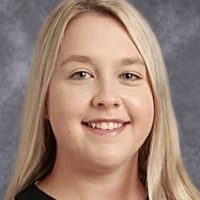Special Education

Lisa Zakreski
Learning Support

Ami Yanochik-Shimo
Learning Support
Fell Charter School uses various methods for testing student’s knowledge levels, including iReady Reading and iReady Math Diagnostics, The PSSA (PA System of School Assessment), and other research-based tests as needed, including through the N.E.I.U’s specialists. Testing is conducted by professionals.
Fell Charter School has developed policies and procedures in concurrence with the federal and state regulations and guidelines to ensure a free and appropriate education in the least restrictive environment to all school-age children, including those with disabilities.
When students experience difficulties in school, teams will meet to develop interventions to help students be successful in regular education. The Student Assistance Team (SAT) accomplishes/documents this work.
If a student continues to experience difficulties even with regular education interventions, the student may be referred for a multidisciplinary evaluation by the multidisciplinary team, which includes the student’s parents/guardians.
Parent/Guardian permission is necessary before any evaluation can take place. The parent/guardian is notified in writing of the types of assessments that will be given and the proposed date(s) of the evaluation.
The School Psychologist completes an Evaluation Report (ER) which states whether a disability or disabilities exist and if the student is in need of special education.
Parents/Guardians are members of the evaluation team and will be asked to provide relevant information.
The entire evaluation process must be completed within 60 calendar days from the date the FCS receives signed parent permission on the “Permission to Evaluate” form. A copy of the ER will be given to the parents/guardians and a summary of the report will be communicated to them.
If a student is found to be eligible for special education, the parents/guardians will be invited to an Individualized Education Plan (IEP) meeting. Students eligible for special education must meet one or more of the criteria established by State Standards and regulations for the following categories:
Autism
Deaf-blindness
Deafness
Emotional Disturbance
Hearing Impairment
Mental Retardation
Multiple Disabilities
Orthopedic Impairment
Other Heath Impairment
Specific Learning Disability
Speech and Language Impairment
Traumatic Brain Injury
Visual Impairment including blindness
A reevaluation is conducted at least every three years unless a student is disabled due to mental retardation, in which case reevaluations are conducted every two years.
The IEP is developed by a team, which includes some members of the evaluation team as well as the parent(s)/guardians, the special education teacher, a school administrator, the regular education teacher(s) and sometimes the student. The IEP includes a description of the programs and services necessary to assist an eligible student. Information that is contained in the ER is used to write the IEP.
The student’s program is reviewed every year at an IEP meeting or more frequently at the request of an IEP team member, which includes the parent(s)/guardians.
The IEP team will write annual goals which can be measured and are designed to meet the needs of the student. The IEP team will determine special education services and programs. The annual goals will be evaluated on a regular schedule and parents/guardians will be notified of progress of these goals in writing.
Once the IEP has been developed, the parent will receive a Notice of Recommended Educational Placement (NOREP). The NOREP details the educational program recommended by the FCS. A parent/guardian must approve the NOREP in writing before implementation of the student’s first special education placement.
The location and level of placement are determined at the IEP meeting and are based upon the least restrictive environment where the student can successfully achieve his/her goals. The Least Restrictive Environment would include providing special education services and programs provided outside the general education classroom only when supports and services cannot be provided successfully within general education classroom.
FCS considers a full continuum of services when determining an appropriate program for every student with a disability.
